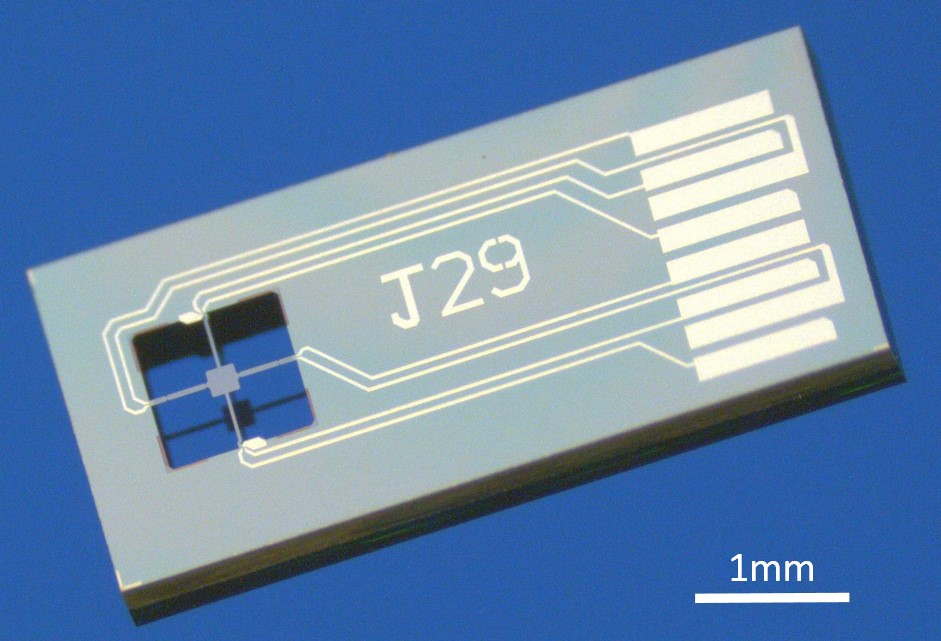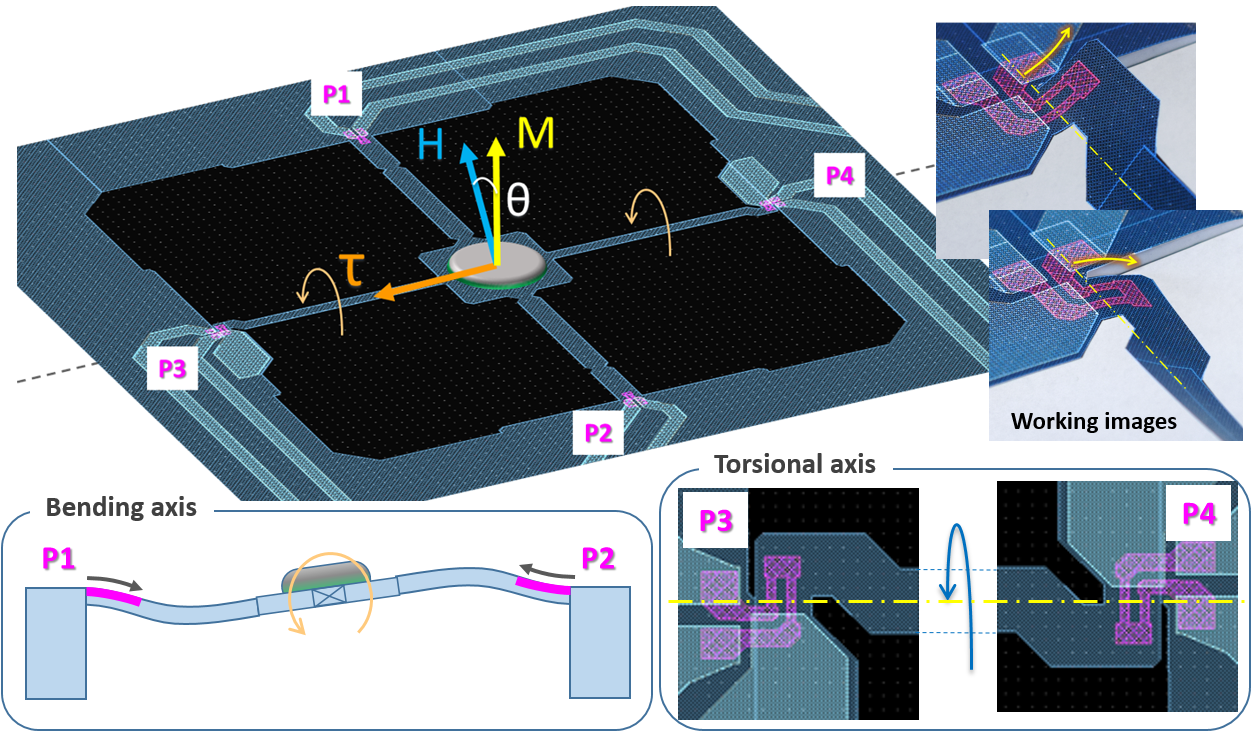NANOSENSORSTM has completed the development of a new Membrane-type Surface-stress Sensor (MSS) dedicated for torque magnetometry.
Torque magnetometry is a useful technique often employed for assessment of various materials like organic conductors, magnetic and superconductor materials.
Now NANOSENSORSTM has added this new type “SD-MSS-1KTM” to the Special Development list .
The new sensor chip shares the common MSS features, i.e., a membrane (or platform) supported with four beams on which piezoresistors are embedded at the fixed ends. In the newly developed sensor chip, however, those sensing beams are much longer than in the other two MSS chips (SD-MSS-1K and SD-MSS-1K2G) and form “bending” and “torsional” axes.
For two different functional axes, differently designed piezoresistors are embedded to effectively sense the torque generated by the sample. Considering a use at cryogenic temperatures, the resistance of the piezoresistor is designed relatively low and in the range of 0.3 – 1.2 kΩ. Each piezoresistor can be individually connected so that various measurement configurations can be arranged by the user.
Compared to the conventionally used piezoresistive cantilevers, the new type of Membrane-type Surface-stress Sensor “SD-MSS-1KTM” has many advantages:
- easier to handle the chip
- relatively robust structure
- larger sample capability, etc.,
all of which facilitate preparations of measurement setup and increase turnaround of material assessment.
For further technical information, price or delivery times please contact us at info@nanosensors.com

NANOSENSORS™ Membrane-type Surface-stress Sensor (MSS) dedicated for torque magnetometry “SD-MSS-1KTM”
